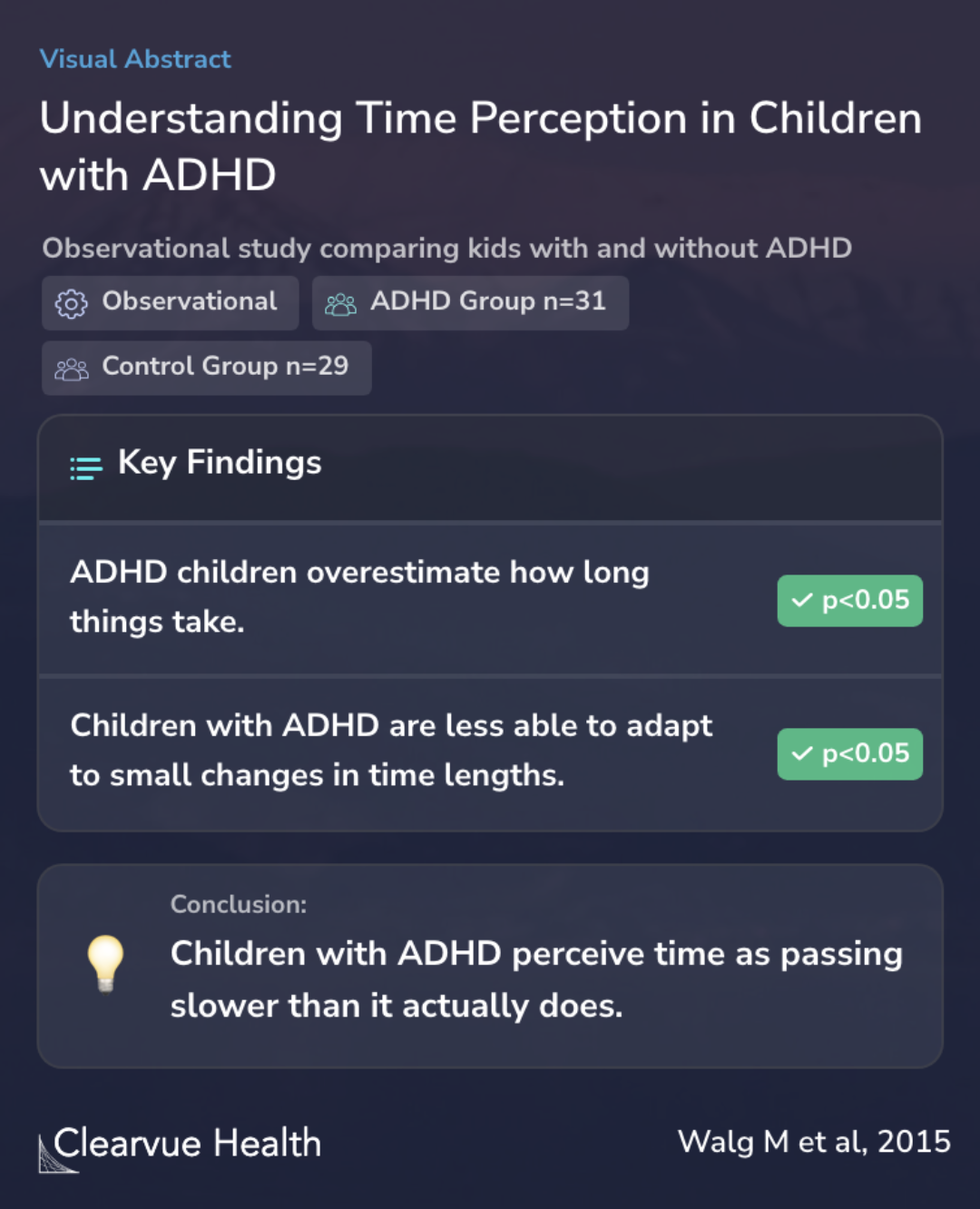Time Perception and ADHD in Children
Understanding Time Perception in Children with ADHD
Walg M, Oepen J, Prior H

Objectives
The study aimed to understand time-processing alterations in children with Attention Deficit Hyperactivity Disorder (ADHD). It focused on assessing how these children judge durations and respond to changes in time intervals. These judgments involved periods ranging from several seconds to milliseconds. The objective was to gain a deeper insight into the nature of these alterations in ADHD.
The nature of time-processing alterations in ADHD was assessed by means of duration judgments and temporal set-shifting tasks lasting several seconds and milliseconds.
Methods
Children with ADHD and a control group were part of an observational study. They were first trained using visual stimuli representing long and short durations. After this training, 31 children with ADHD and 29 without were asked to estimate the durations of test stimuli. The testing involved systematically varying the temporal context, shifting the duration of stimulus sets to either longer or shorter intervals.
After training with visual sample stimuli for long and short durations, 31 children with ADHD and 29 controls estimated the durations of test stimuli. During testing, the temporal context was systematically varied by shifting the duration of stimulus sets to longer or shorter intervals.
Results
The results indicated that children with ADHD generally overestimated the duration of stimuli, particularly on the seconds scale. While their ability to discriminate between different times was normal, their adaptations to new temporal sets were less efficient, especially on the milliseconds scale. This finding was significant and points to a distinct pattern in how children with ADHD perceive time.
Children with ADHD generally overestimated the durations of stimuli on the seconds scale. Their assessment of stimuli on the milliseconds scale can be characterized as less-efficient adaptations to new temporal sets alongside otherwise normal discrimination performance.
Conclusions
The study's findings underscore a specific alteration in time perception among children with ADHD. It also provides the first evidence that the difficulties in mental set-shifting, already noted in other tasks, extend to temporal processing in these children. This conclusion ties in with previous research, suggesting that children with ADHD perceive time as passing more slowly than it actually does. This insight adds a vital piece to our understanding of ADHD and its effects on time perception.
Findings support a pure time perception alteration in ADHD. In addition, results provide first evidence that difficulties in mental set-shifting, which have been reported for other tasks, extend to temporal processing in children with ADHD.
Key Takeaways
Context
Research prior to this study, such as the one by Meaux et al. in 2003, had already highlighted differences in time perception between children with and without ADHD. These earlier findings showed significant discrepancies in how children with ADHD perceive time. This context helps in understanding the significance of the current study's results.
Another study by McInerney RJ et al. in 2003 investigated whether the deficits in time sense among children with ADHD were due to a true deficit or a motivational issue. It was found that while motivation improved performance in time reproduction tasks, children with ADHD still performed worse than controls. This finding is particularly relevant as it suggests that motivation can influence, but not completely correct, the time perception differences in children with ADHD. The current study further builds on this understanding by providing more nuanced insights into the nature of time perception alterations in ADHD.